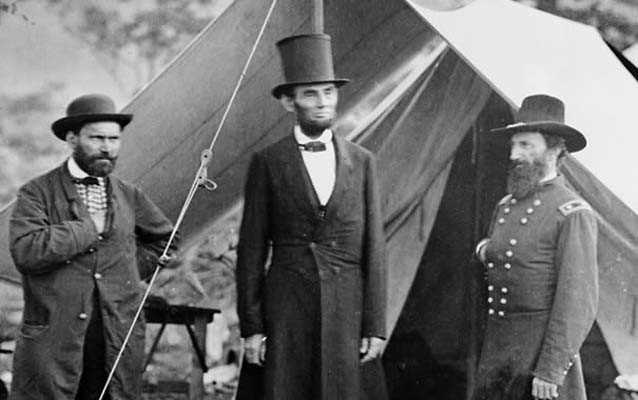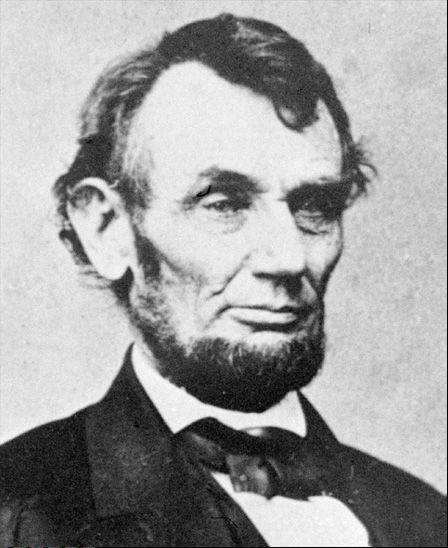
President Abraham Lincoln played a pivotal role in the American Civil War, leading the United States through one of its most challenging and transformative periods in history. As the 16th President of the United States, Lincoln faced the difficult task of preserving the Union and ending slavery, all while navigating a divided country and a war that would claim the lives of hundreds of thousands.
One of Lincoln’s most significant contributions during the Civil War was his unwavering commitment to preserving the Union. Despite facing opposition from Confederate states and even members of his own government, Lincoln maintained a steadfast belief in the importance of a united country. In his famous Gettysburg Address, Lincoln declared that the United States was “conceived in Liberty, and dedicated to the proposition that all men are created equal.” This commitment to the ideals of the American Constitution and the preservation of the Union served as a guiding principle throughout the war.
In addition to his dedication to preserving the Union, Lincoln also recognized the importance of ending slavery as a central issue of the war. In 1863, he issued the Emancipation Proclamation, declaring that all slaves in Confederate-held territory were to be set free. While the Proclamation did not immediately free all slaves, it marked a significant step towards the eventual abolition of slavery and signaled Lincoln’s commitment to the cause. Lincoln’s efforts to end slavery were further solidified with the passage of the 13th Amendment to the Constitution in 1865, which officially abolished slavery in the United States.
Lincoln’s impact on the Civil War extended beyond his political decisions and policies. His leadership during this tumultuous period inspired and rallied the American people. Lincoln’s eloquence and ability to communicate his vision for a united and free nation resonated with the American public, and his speeches and writings continue to be studied and celebrated today. Despite facing immense challenges and criticism, Lincoln remained steadfast in his resolve to see the Union preserved and the institution of slavery abolished, leaving a lasting impact on the course of American history.
The Leadership of Abraham Lincoln
Abraham Lincoln’s leadership during the Civil War played a crucial role in shaping the outcome of the conflict. As the 16th President of the United States, Lincoln faced the daunting task of preserving the Union and ending slavery. His leadership style and decisions had a significant impact on both the military strategy and the political landscape of the time.
One of Lincoln’s key strengths as a leader was his ability to inspire and motivate others. He possessed a strong sense of conviction and a deep belief in the principles of democracy and equality. Lincoln’s powerful speeches, such as the Gettysburg Address, rallied the nation and instilled a sense of purpose and duty in the soldiers fighting for the Union.
Furthermore, Lincoln was a skilled strategist who understood the complexities of warfare. He worked closely with his military advisors, such as General Ulysses S. Grant, to develop effective strategies for defeating the Confederate forces. Lincoln’s leadership in guiding the Union to victory in battles like Gettysburg and Appomattox Court House proved critical in turning the tide of the war.
In addition to his military leadership, Lincoln was also a masterful politician. He skillfully navigated the often contentious political landscape of the time, forging alliances and managing competing interests to maintain support for his policies. Lincoln was able to unite factions within his own party, the Republican Party, as well as gain the support of some Democrats, ensuring the continued strength of the Union cause.
Overall, Abraham Lincoln’s leadership during the Civil War was marked by his ability to inspire, strategize, and navigate the political landscape. His unwavering commitment to the preservation of the Union and the abolition of slavery laid the foundation for a united and more equal United States. Lincoln’s leadership continues to be celebrated and studied as a shining example of effective leadership in times of crisis.
The Early Years
Abraham Lincoln was born on February 12, 1809, in Hodgenville, Kentucky. He grew up in a modest log cabin with his parents, Thomas and Nancy Lincoln. From an early age, Lincoln showed a keen interest in education and books, despite the limited resources available to him. He would often walk long distances to borrow books from neighbors and developed a love for reading and learning.
Lincoln’s family moved to Indiana when he was seven years old, seeking better opportunities. Life in Indiana was challenging, with the family facing financial difficulties and the loss of Lincoln’s mother to milk sickness. These early hardships shaped Lincoln’s character and instilled in him a strong work ethic and a determination to succeed.
As a young man, Lincoln took on various jobs to support himself and his family. He worked as a farmer, a rail-splitter, and a store clerk, all while continuing his education. In 1830, Lincoln moved to Illinois, where he settled in New Salem and began studying law. He taught himself the legal profession and passed the Illinois bar exam in 1836.
These early years were formative for Lincoln, as he honed his skills and developed the qualities that would later make him a successful politician and leader. His humble beginnings and self-taught education gave him a unique perspective and empathy for the struggles of the common man, which would shape his presidency during the turbulent times of the Civil War.
Rise to Presidency

Abraham Lincoln’s rise to the presidency was a result of his extensive political career and his strong stance against slavery. Born in a log cabin in Kentucky in 1809, Lincoln’s humble beginnings shaped his character and determination. He served as a lawyer and a Whig Party member before joining the newly formed Republican Party in the 1850s.
In 1860, Lincoln emerged as the Republican Party’s nominee for president, facing off against several other candidates, including Stephen Douglas. His campaign focused on the issue of slavery, with Lincoln advocating for its abolition. His eloquent speeches and debates with Douglas gained him national attention and support, particularly in the Northern states.
Lincoln’s election as the 16th President of the United States in November 1860 marked a turning point in American history. His victory was seen as a threat to the Southern states, as they feared his anti-slavery stance would undermine their way of life. This fear eventually led to the secession of several Southern states and the onset of the Civil War.
Despite the challenges he faced, Lincoln took office on March 4, 1861, determined to preserve the Union and end slavery. His leadership during the Civil War would prove to be pivotal, as he navigated the complexities of a divided nation and worked towards emancipation. Lincoln’s rise to the presidency marked the beginning of a transformative period in American history and set the stage for the abolition of slavery.
Challenges and Decision-Making
During the Civil War, President Lincoln faced numerous challenges and had to make important decisions that would shape the course of the war and the future of the nation. One of the most significant challenges he faced was the issue of slavery. Lincoln believed that it was morally wrong and was determined to abolish it, but he also had to consider the political and economic implications of such a decision.
Another challenge that Lincoln faced was the maintenance of a unified and strong Union. The secession of the Southern states posed a threat to the stability of the nation, and Lincoln had to make decisions that would preserve the integrity of the United States. He took actions such as declaring a blockade of Southern ports and suspending the writ of habeas corpus to maintain control over the rebellious states.
Furthermore, Lincoln had to deal with military challenges during the war. He had to select capable military leaders, such as General Ulysses S. Grant, and make strategic decisions regarding the deployment of troops. Lincoln also had to navigate the complexities of fighting a war on multiple fronts and coordinate the efforts of various commanders.
Decision-making was a crucial aspect of Lincoln’s role during the Civil War. He had to balance conflicting interests and opinions, both within his own cabinet and among the general public. Lincoln’s decisions, such as issuing the Emancipation Proclamation and delivering the Gettysburg Address, had a profound impact on the course and outcome of the war.
In summary, President Lincoln faced numerous challenges during the Civil War, including the issue of slavery, the maintenance of a unified Union, and military challenges. His decision-making skills and ability to navigate these challenges played a crucial role in shaping the course of the war and the future of the nation.
The Emancipation Proclamation and Its Significance

The Emancipation Proclamation, issued by President Abraham Lincoln on January 1, 1863, was a pivotal moment in the history of the United States. This executive order declared that all slaves in Confederate territory were to be set free. While it did not immediately free all slaves, as it only applied to areas in rebellion, it was a significant step towards ending the institution of slavery.
The Emancipation Proclamation had several key significances. Firstly, it changed the purpose of the Civil War. Originally, the war was fought primarily to preserve the Union, but with the proclamation, it became a war for both preserving the Union and ending slavery. This shift in focus had profound implications for the moral and political landscape of the country.
Secondly, the proclamation had a significant impact on international relations. By declaring that the United States was fighting for the abolition of slavery, it garnered support from European nations that had previously been hesitant to support the Union cause. This support was crucial in preventing European intervention on behalf of the Confederacy.
Thirdly, the Emancipation Proclamation played a vital role in shaping the future of the United States. It paved the way for the passage of the 13th Amendment to the Constitution, which formally abolished slavery throughout the entire country. Without the proclamation, it is unlikely that the 13th Amendment would have been passed, as it provided the moral and political groundwork necessary for its enactment.
While the Emancipation Proclamation did not immediately free all slaves, it was a critical turning point in the fight against slavery and played a crucial role in the eventual eradication of this institution in the United States. Its significance cannot be overstated, as it fundamentally changed the direction of the Civil War and laid the groundwork for the end of slavery in America.